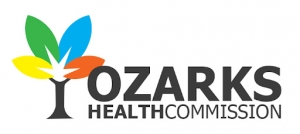The Joplin Health Department is now offering cardio-pulmonary resuscitation (CPR) classes for the community, with the first classes offered on Thursday, September 8. Three different courses, including Friends and Family, Heart Saver, and Heart Code Basic Life Support, follow American Heart Association’s criteria with two of the three classes offered each month. The first sessions include HeartCode BLS Skills Checkoff from 2:30 p.m. to 3:30 p.m., and Friends and Family offered from 4 p.m. to 7 p.m. on September 8. All classes will be held in a meeting room of the Joplin Public Library. To determine which class fits specific needs, please see descriptions below.
Friends and Family CPR AED – The Family & Friends CPR Course teaches the lifesaving skills of adult Hands-Only CPR, adult CPR with breaths, child CPR with breaths, adult and child AED use, infant CPR, and mild and severe airway block for adults, children, and infants. Skills are taught in a dynamic group environment using the AHA’s research-proven practice-while-watching technique, which provides students with the most hands-on CPR practice time possible.
Heartsaver CPR AED – This course is for anyone with little or no medical training who needs a course completion card for their job, regulatory (e.g., OSHA), or other requirements or anyone who wants to be prepared for an emergency in any setting. Upon successful course completion, students receive a course completion card, valid for two years.
HeartCode® BLS Skills Checkoff –HeartCode® BLS Online is a self-directed, comprehensive eLearning program that uses adaptive learning technology to allow learners to acquire and demonstrate Basic Life Support skills using a personalized learning path that adapts in real-time to a learner’s performance. The program is designed for healthcare professionals who need Basic Life Support training for their clinical duties. Utilizing a variety of eLearning assets such as dramatizations, Cognitive Assessment Activities, illustrations, knowledge checks, and interactive activities, this program teaches BLS knowledge and skills. This method of learning provides training consistency and adaptability to different learning styles. Students can work at their own pace applying their knowledge to real-time decision-making. Debriefings and coaching are provided immediately after each knowledge check and each Cognitive Assessment Activity. Students who successfully complete the cognitive portion and the hands-on session (skills) will receive an AHA BLS Provider course completion card (eCard), valid for two years.
Fees for the classes are Friends and Family is $25, HeartSaver is $50 (full in class setting), and Heart Code Basic Life Support is $20 for the skills check-off. Participants can register and pay for any of the classes on the Joplin Parks registration website of their online catalog. Classes are listed under the Adult Programs division of the registration site. Citizens can also call the Health Department at 417-623-6122, ext. 1256.
The remaining schedule for upcoming months includes:
| Date | FRIENDS AND FAMILY | HEARTSAVER CPR AED | HEARTCODE BLS |
| September 8, 2022 Conference Room 1 | 4:00pm-7:00pm | X | 2:30pm-3:30pm |
| October 18, 2022 Conference Room 1 | 9:30am – 12:00pm | 1:30pm-4:30pm | X |
| November 10, 2022 Community Room East | X | 12:00pm-4:00pm | 9:30am-10:30am |
| December 13, 2022 Conference Room 1 | 4:00pm-7:00pm | X | 2:30pm-3:30pm |
Submitted By: Lynn Onstot, Public Information Officer, 417-624-0820, ext. 1204
– WWW.JOPLINMO.ORG –

